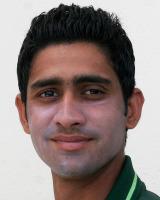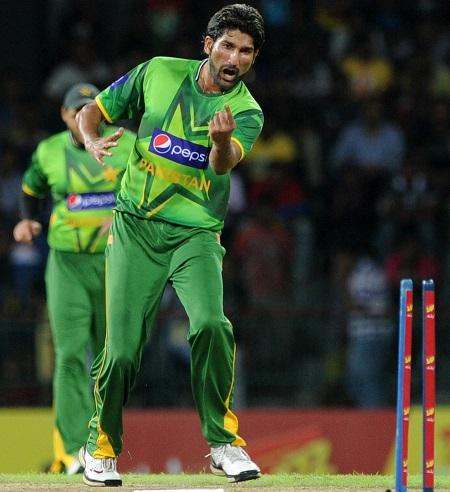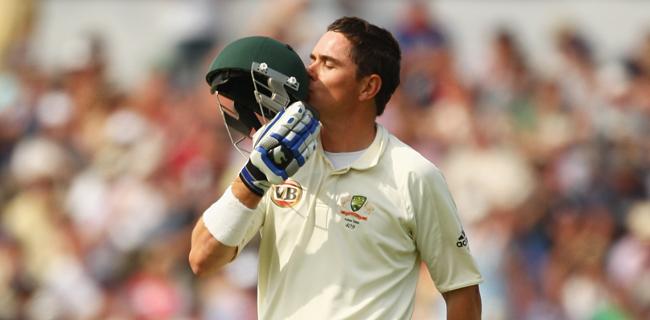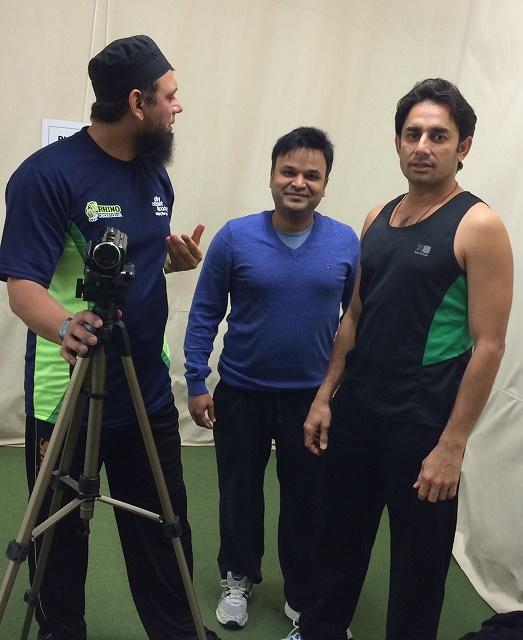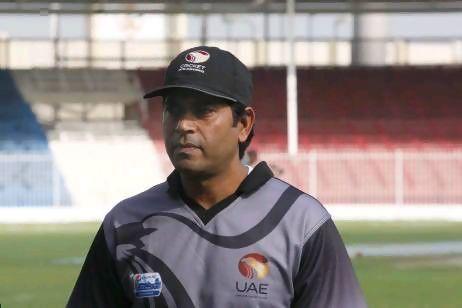PakPassion is delighted to bring you an exclusive interview with the Chief Executive of the ICC, Mr Haroon Lorgat. Haroon was appointed Chief Executive of the International Cricket Council in April 2008 and assumed office on 4 July 2008, succeeding Malcolm Speed.

by Saj Sadiq
PakPassion.Net: The ICC has received heavy criticism on the decision to limit the number of teams for the next World Cup to ten, are you going to change your stance after such a negative reaction and what will be the process to review this decision?
Haroon Lorgat: The criticism is understandable. However, it is for the ICC Board to decide what is in the best interest of the game. As previously announced, the Board will revisit the decisions made surrounding the composition of the ICC Cricket World Cup 2015 when it next meets (at the end of June in Hong Kong).
PakPassion.Net: The ICC has taken respectable measures such as using colour balls and day/night Tests to help improve attendances in Test matches. What other ideas does the ICC have in the pipeline?
Haroon Lorgat: International cricket is fortunate to be in a very exciting and enviable position. It currently enjoys three popular and viable formats of the game and I don?t think any other sport can claim that.
As far as we are concerned, Test cricket is the pinnacle of our great sport and is so acknowledged by the players. We therefore believe it must be protected and promoted and to achieve this, we think that issues like context, content and scheduling are important factors that must be addressed.
We want to see Twenty20 Internationals but not too many ? that is why there is a limit on the number of international T20s. We want ODIs to continue to flourish but within a context that would make every match count. And we want Test cricket to keep its rightful place at the top of the sport. Tests are the true mark or measure of where a player stands at the highest level. It?s how great players are remembered and how they can be compared to players of yesteryear. Again, the key here is context.
That is why we are keen to promote an ODI League and a Test Championship. We believe that interesting competitions will maintain the popularity of each format and grow the game further. In addition, we will always consider any initiative that has the potential to develop the game, make it more relevant and popular while still maintaining the unique history and spirit that the sport enjoys around the world.
PakPassion.Net: When, if at all, should we expect the UDRS to be implemented universally and what measures would the ICC be willing to take if the BCCI continues to refuse its use ?
Haroon Lorgat: That will depend on the ICC Board. We are very satisfied with the way DRS, which is pioneering technology, has progressed. No one doubts that it has helped to raise the percentage of correct decisions - by more than five per cent from about 92 per cent to more than 97 per cent - and crucially it has removed the obvious umpiring errors. Even though such errors are rare thanks to the high level of performance by our elite umpires, they can and do occur from time to time. The DRS helps to remove these and allows the game to proceed without a blatant error becoming a lasting feature of the match. At present there are practical issues with the availability of technology and hence it is up to the respective Member Boards to decide if they wish to use DRS in any given series.
PakPassion.Net: Why is the ICC not making sure that every Test playing nation is playing each other on a regular basis, once away and once at home (if possible) in Tests? An example of this is India has not played Pakistan in tests since 2007?
Haroon Lorgat: It is a feature of international cricket that fixtures are organized bilaterally. Members do not wish to give up this right and accordingly they will determine between themselves when they will play against each other. The ICC provides guidelines and maintains the FTP. As you know, there are reasons why it?s not always possible for some teams to play each other as often as they might like.
PakPassion.Net: Looking back at Bangladesh's promotion to Test status, with the benefit of hindsight, do you think it came too soon and what lessons were learnt from their elevation to Test cricket?
Haroon Lorgat: Bangladesh has shown good progress in the past decade. Playing competitive Test cricket takes time and every new Test playing nation has taken time to settle down before becoming a winning nation at Test level. Bangladesh continues to enjoy the ICC?s full support and I am hopeful that it will continue to improve its performances. The nation has enormous energy and passion for the game and there is good reason to be optimistic for the future of cricket there.
PakPassion.Net: Some observers have described the steps taken after the spot fixing case by the PCB as rather belated and "artificial". Are you satisfied with the steps that have been taken by the PCB and what further measures do they need to take?
Haroon Lorgat: I believe the PCB is well aware of the seriousness of corruption in cricket and they are tackling the issues. The recent guilty verdict on the three players has resulted in the PCB taking a number of important steps to fight this scourge. But it is not a problem confined to Pakistan. Corruption is a threat to all countries and can strike anywhere, so it?s important we don?t confine our attention to one or two places. There is no evidence to suggest that corruption is widespread in cricket but that does not mean we can be complacent. While I know the vast majority of players to be honest, we must always be on the lookout for anything that could harm the reputation or the integrity of cricket.
PakPassion.Net: What is the ICC's stance on a International window for a domestic T20 competition (IPL)?
Haroon Lorgat: The ICC manages international cricket, not domestic tournaments. No Member has sought a window in the international schedule for any of its domestic competitions and nor has the ICC considered any such proposals.
PakPassion.Net: Has the ICC thought about using sponsorship deals for hot spot and other technologies such as DRS, which would help them being available in all Test matches?
Haroon Lorgat: Yes.
PakPassion.Net: After the tribunal in Doha you stated that the ICC wasn't bound to the recommendation to change, only to consider it, referring to certain aspects of the code and sanctions. Can you provide us with an update on this?
Haroon Lorgat: There is currently a full independent review of our anti-corruption measures underway. While we are confident with our processes, we also believe there is always room for improvement. That is why we have engaged in this external review. The outcomes from the review will hopefully provide us with enhancements in our fight against corruption.
It is widely acknowledged that the ICC is leading the way in world sport when it comes to anti-corruption measures and we intend to remain at the forefront by constantly re-evaluating our processes. We must be sure that we are effective and that we are keeping pace in the fight against corruption.
PakPassion.Net: Haroon your thoughts on some players who are "taken" from Associate teams and asked to play for them by Test playing nations (example Eoin Morgan)? Should it not be a case of if you have played for one nation, you cannot play for another nation?
Haroon Lorgat: The debate around eligibility for international cricket has been going on for decades, possibly even longer. As you rightly point out, there have been a small number of players who first played for an Associate team and then, after a period of qualification, switched allegiances to a Full Member team. The issue merits a continuing and broad debate so that we can determine what is best for the global game. At present, the Associates can continue to select players who are undergoing a qualification period for a Full Member, which is a significant advantage.
In answer to the second part of your question, if a talented player is advised that he may never play for a Test-playing country once he has first turned out for an Associate, then he might choose to make himself unavailable for the Associate in the hope of some day being selected for a Test team, thus depriving the Associate of his services in the mean time.
Also, as you know, some Associates select players who are eligible under the current rules but were born and learned their cricket overseas ? I?m sure they wouldn?t want that avenue to be closed to them. And neither would we. There are also issues surrounding an individual?s personal choice as well as laws governing freedom of labour in some jurisdictions.
Suffice to say, it?s a complex issue with many and varied options and opinions being aired on the subject. We are always reviewing the criteria and rules to ensure fairness and the best outcomes for the game.
